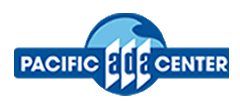FEMA Promising Practice: Overnight Shelter Experiences
9th July, 2015
There are many reasons to undertake an exercise such as the Overnight Shelter Exercise with the Disability Community, such as, the lack of appropriate and accessible services in shelters is a violation of civil rights law, but more importantly, one in five people encountered during any disaster will have a disability or about 56.7 million people, approximately 19 percent of the population, had a disability in 2010. Many first responders lack familiarity and working knowledge they require to successfully integrate all members of the community in all aspects of the work they do. The shelter exercise was an opportunity to fully exercise all aspects of evacuation in real time with community participants and gain needed capacity and competency while also learning lessons and identifying gaps in the process. Working together and exercising capacity and resources ultimately saves lives.
Learning objectives:
- Participants will learn how to plan an overnight exercise with the disability community
- Participants will hear about the challenges encountered in the process and learn how to overcome them
- Participants will come away with the tools necessary to replicate this activity in the local community
Presenter:
- Carole Tonks, Executive Director, ACI - Carole has over 25 years of experience in the disabilities field. The past 8 year she has served as Executive Director at the Alliance Center for Independence. Carole has an adult son who has Autism and understands the challenges faced by people with disabilities during disasters.
- Luke Koppisch, Deputy Director, ACI - Luke has a Master's in Education and over 20 years of experience in the disabilities field. Luke has helped, trained and given presentations to people with disabilities in preparing for disasters. Established in 1986, the Alliance Center for Independence (ACI) has numerous years of experience in disaster preparedness training over 150 individuals and recently secured a grant to provide durable medical equipment and help make homes accessible under the Sandy NJ Relief program.
Handouts:
- Overnight Shelter Experience (ppt)
- Overnight Shelter Experience (rtf)
- Overnight Shelter Experience 1 slide per page (pdf)
- Overnight Shelter Experience 2 slides per page (pdf)
Contact the Pacific ADA Center if you need access to this recording.

